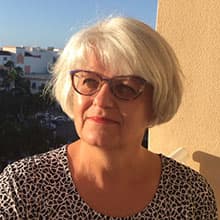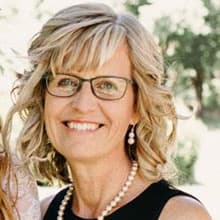Over the past year, the Tyndale Spiritual Formation Centre (TSFC) has been offering courses to encourage dialogue, personal development, encouragement and unity.
Read on to find out more about upcoming modules.
Spiritual Formation Certificate Module 6 – Social Transformation: The Practice of Community Compassion
Instructor: Sharon Bradimore, STM, MDiv; CSDS
Register for the Spiritual Formation Certificate Module 6
About This Module
This module will focus on the Great Commandment to "love others as ourselves." Spiritual formation and spiritual direction may be personal, but they are never private. Just as Jesus laid down His life for others, we are also to seek the mind of Christ for the sake of others. Sharon is deeply moved and motivated by Jesus' integration of prayer and action.
Learning Outcomes
- Deepen your understanding of the critical connection between personal spiritual formation and communal practices of mercy and justice.
- Learn to read the signs of the times as we engage in theological reflection.
- Experience ways of being together that strengthen the connection between prayer and action – as individuals and as a Christian community.
- Explore everyday ways to amplify the voice of the least, the lost and the lonely.
Q&A with Sharon
 Why is this topic important to you?
Why is this topic important to you?
In my experience, Jesus invites this apparently “peculiar” combination of tender-heartedness and courage. What we see and hear in listening prayer and then sing about with all our heart in worship shapes how we perceive the injustices of our world. The line between prayer and action is gradually erased; it can create tremendous inner tension. What do we do with it? That question has touched and shaped the whole of my life. It is that important to me.
What do you hope participants will learn from this module?
Perhaps we will discover a deeper sense of the relationship between lament and hope … or become a little less afraid of our questions or our pain, or of the brokenness we sense within and without.
God willing, might we develop a little more capacity to be with the “unknowing”? Or maybe ease our grip on the things we do to distract ourselves from the several crises facing our world? My hope is that we “begin again” to discover what is ours to do. To journey with increased joy. To take a baby step in any of these places – that is my hope.
Enneagram Certificate Module 5: Passions of the Enneagram
Instructors: Sue Guttenstein, PhD., and Cynthia Stevens, M.Div, CSDS
Register for the Ennegram Certificate Module 5
About This Module
Each Enneagram type has a specific “passion” or emotion that shapes how it expresses itself. The passion is our heart's response and automatically and rigidly governs how we react during the situation at hand, more than we could ever imagine. Becoming aware of how this happens and working to slow down helps us access the virtue of our type more easily. Gradually we can grow into our gifts, the parts of the Divine that can be in the world through us.
Learning Objectives
- To understand how nine specific passions (anger, pride, deceit, envy, avarice, fear, gluttony, lust, sloth) are experienced by the nine types and to grow in compassion for ourselves and others
- To improve your ability to recognize your passion and the suffering it causes
- To have a deeper sense of the virtue of your type (serenity, humility, veracity, equanimity, non-attachment, courage, sobriety, innocence, right action)
Q&A with Cynthia
 Why is this topic important to you?
Why is this topic important to you?
The Enneagram is so important because it is a deeply accurate map for looking at our personality, describing nine different patterns of thinking, feeling and acting. Working with it gives us insight into the limits and contributions of each “type.” It helps us become more aware of our own patterns, our blind spots and automatic reactions, and, as important, our gifts. This understanding gives us the opportunity for choice and, with God’s help, change and growth. It strengthens our empathy, acceptance and understanding of others’ ways. As such, it is a powerful tool for understanding ourselves and the people in our lives.
Using the Enneagram daily for these past seven years, my life, my relationship with God, myself, my family, friends and co-workers has grown and been transformed.
In working with others over these last years, using the Enneagram, I have witnessed growth in marriages, changes in parenting, and deepening faith walks with God. I am committed to this Enneagram work because I have seen the wonderful change it can foster in my life and in others’ lives.
What do you hope participants will learn from these sessions?
I truly hope that participants, as they come to understand the nine Enneagram types, become more self-aware and grow in their compassion for themselves and for others. This is the invitation and the gift of the Enneagram.
